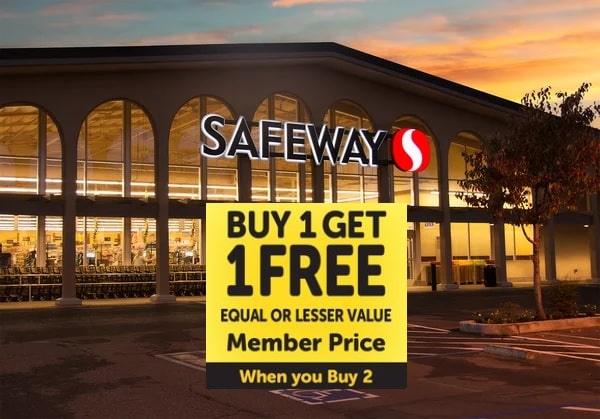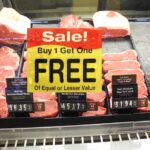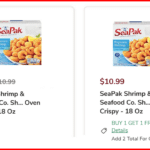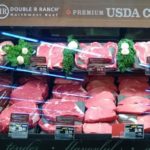
Don’t hold your hand out for another settlement from Safeway over bogus BOGOs. A year after the grocer set aside $107 million to refund customers as part of a class-action lawsuit, a similar dispute has been resolved with no such payment in the works, and yet another case appears on its way to the same outcome.
Washington state shopper Kim Siflinger sued the grocery chain in April of last year, arguing that Safeway “routinely increased the regular retail price of items when offering them in BOGO sales.” Two months later, California shopper Caleb Haley filed a similar lawsuit, claiming that during BOGO sales, Safeway will “raise the regular retail price of the BOGO grocery products, so that consumers pay substantially more for the first product to cover the cost of the second product that Safeway claims is ‘free.’”
And both lawsuits came shortly before Safeway resolved claims that it had inflated the regular prices of some meat products during BOGO promotions in the state of Oregon, resulting in a settlement in which affected shoppers were reimbursed $200 apiece.
Neither Siflinger nor any of the shoppers she hoped to advocate for in her proposed class-action lawsuit will be receiving checks in the mail, though – largely due to some key differences in her case – and likely Haley’s case as well – as compared to the Oregon case.
The Oregon shoppers argued that Safeway hiked the regular price-per-pound of meat products when offering those products as part of a buy-one-get-one-free deal – up to five times the regular price, in at least one case. While Safeway denied any wrongdoing, a judge involved in the case ultimately pointed out that “Safeway conceded that it had inflated regular prices of some items during promotions,” and therefore agreed to reimburse affected shoppers as part of the settlement.
In Siflinger’s case, however, Safeway pointed out that her lawsuit made what it called “apples-to-oranges comparisons.” On one day, Siflinger said Safeway sold a box of SeaPak frozen shrimp for $7.49. “The next day, Safeway offered the same product for $10.99 as part of a Buy 1, Get 1 Free sale,” her lawsuit stated.
Her lawsuit didn’t point out that the $7.49 price appeared to be a sale price, discounted that week from the regular price of $10.99. The BOGO sale that began the next day superseded the previous promotion, requiring shoppers to buy one item at regular price in order to get a second one for free.
Siflinger’s claims “show only that Safeway ran different promotions, offered different products at different prices, and sold some of the same products at different prices,” Safeway fired back, rejecting the accusation that it raised the “regular price” before the BOGO sale.
Besides, when she accepted the terms of Safeway’s loyalty program to which she belongs, Safeway said Siflinger agreed to resolve any disputes via arbitration. So to arbitration the dispute went – and that arbitration process has now concluded, “without an award of fees or costs to either side,” the parties have informed the court.
In Haley’s case, he offered several examples of products that were sold at one price prior to a BOGO promotion, and at another price during the promotion. But, similar to the prices highlighted in Siflinger’s case, all appeared to be sale prices one week, and BOGO prices the next – what Safeway would call “apples-to-oranges comparisons” again.
Safeway didn’t even offer a formal response to Haley’s allegations before that case, too, went to arbitration. And that’s where it remains at the moment. So the case is on hold until the two sides reach an agreement, or an impasse. But if the Siflinger case is any indication, the Haley case is likely to end the same way.
Savvy shoppers know that BOGO sales are typically based on a product’s regular price, even if a separate sale means that same product is offered at a lower price at another time. There’s no rule requiring a retailer to layer promotions, offering two items for the price of one item that’s already being sold at a discounted price. The practice becomes deceptive when a BOGO sale is based on something that’s not a “regular” price at all, which is what Safeway tacitly acknowledged was the case when it sent out those $200 checks to shoppers in Oregon.
It will take a savvy litigant to discern the difference. And, since they’re already interested in saving money, they may be able to save themselves some legal fees in the process.
Image source: Safeway











Safeway Canada did the increasing the regular price for bogo too.